“Ministry is meant to be the foundation of the Church—not just one of its departments,” said Stanislav Shynkaryov, Rector of the TMI “Heart of Help”
17 March 2025

Since 2017, Stanislav Shynkaryov has been leading the Ternopil Missionary Institute “Heart of Help” (TMI), whose graduates now serve in countries across Asia, Africa, and Europe.
In an interview, the minister shared his experience of working with churches through TMI to help shape a biblical worldview and prepare missionaries, as well as the role of the Church and pastors in nurturing Christ’s disciples as future missionaries.
He discussed how to nurture disciples, what a missionary church could look like, and why many Christians still end up simply sitting in church pews instead of finding their place in fulfilling the Great Commission of the Lord Jesus.
Stanislav, could you share your story of ministry—how did it all begin?
I repented to God in 2000. Before that, I was a professional soccer player. At 21, I suffered a severe knee injury, and my soccer career was over.
Breaking away from my familiar circle, I began pondering the meaning of my life and what would happen after death. I became curious about spiritual matters, reading books on astrology and palmistry. I asked friends and acquaintances, but their answers were always that there was no higher purpose and that none of us could know what comes after death. Instead, they urged me to recover from the trauma and return to normal life.
One day, while at my grandmother’s house, I stumbled upon a Gospel for kids with illustrations (the Book of Hope from the “One Hope” organization) that someone had given her. There, I read words that answered my questions: “Whoever has the Son of God has eternal life and is not condemned, but whoever does not have the Son is already condemned.”
I realized that I needed Jesus—and not only I, but also my friends and acquaintances needed Him. Without the Son of God, they too would face a judgment none of us could withstand.
So, I decided to read the book to my friends. Sometimes we were hanging out and drinking together, but at some point I would pull out that book and read from it. Eventually, they lost interest in me, and I lost interest in them.
I found a church, repented, and immediately began serving there. I was young, energetic, and trusted, and I was happy. The church became like a second home to me.
I gradually took on more responsibilities and various tasks. Every day I did something in ministry, and as Philip Yancey once wrote in one of his books, I began “seeing the world through the stained glass of church windows.”
On one hand, I was pursuing this wholeheartedly; on the other, the heavy responsibility and the lack of answers to the important questions I had gradually built up internal pressure, compounded by a sense of emptiness and disappointment in the church.
Even though outwardly everything looked good in terms of my ministry achievements, internally I wasn’t mature enough to handle the challenges. I became withdrawn, and ministry at church turned into an unbearable burden. After seven years of active service, I decided to continue my walk with God—but without the church.
After two years away from the church, I realized that the Church is God’s institution, even if it isn’t perfect. I felt a deep longing for God’s house. I returned and began the process of renewal. Fortunately, my relationship with my pastor remained strong.
In 2012, I first visited the Ternopil Missionary Institute “Heart of Help.”

That was the first time I saw students—young men and women from various cities in Ukraine and other countries. They all dreamed of going somewhere: India, Central Asian countries, Africa.
I was amazed. For three days I couldn’t eat, contemplating my own life. Had I fully dedicated myself to God? Could I set everything aside for His sake?
I thought that it would be wonderful to somehow be connected with this Institute. Perhaps it was a seed from God.
Time went on, and I was busy with entrepreneurship—experiencing my own ups and downs. The Lord was preparing me to make a life-changing decision through various circumstances; the seed of God’s call had matured.
Everything came together at the end of 2015, when out of the blue, the then head of TMI, Andriy Tymochko, called me and invited me to serve at the Institute. I felt that this was the Lord “calling” me—it was a firm conviction that He might not call me again.
So, I closed my business, grabbed a suitcase, and headed to Ternopil.
What did you start doing as part of the TMI team?
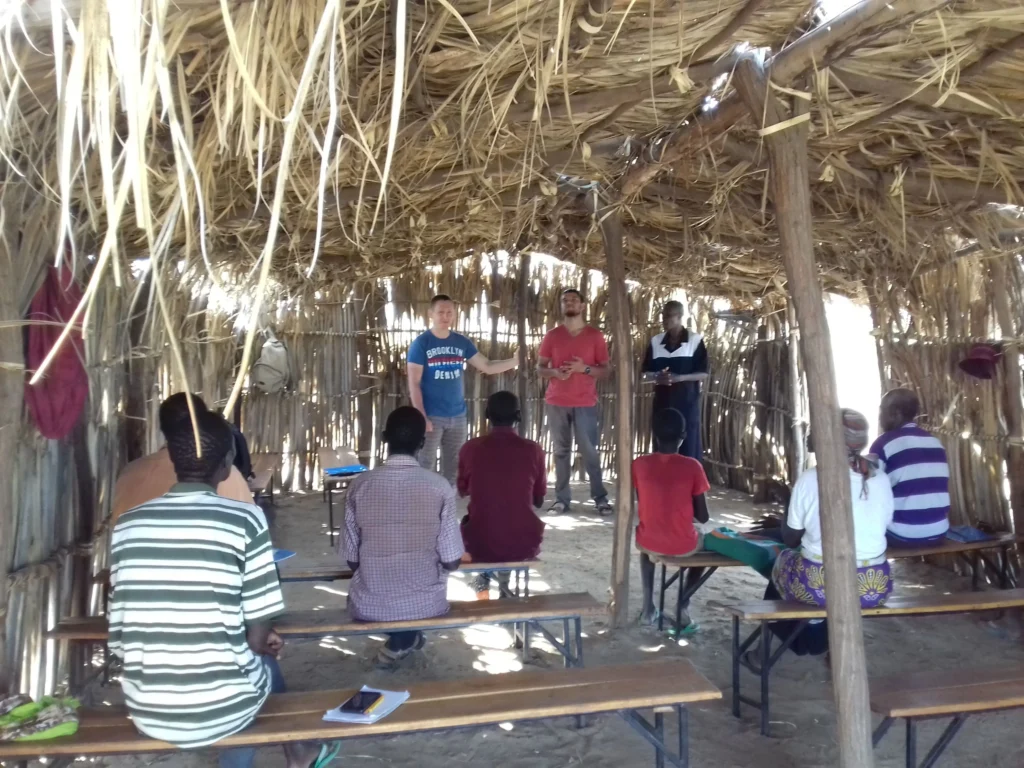
I had three main directions in my ministry:
- Traveling to churches and encouraging people to support mission and missionaries;
- Traveling to where missionaries are serving around the world, meeting them and offering encouragement;
- Mentoring students during their six-month study at TMI.

There was plenty of work. I didn’t know much about the topic of ministry at first, but serving brought me joy. I had to interact with churches of various denominations, with different cultures and ways of life.
Strangely, soon almost the entire Institute staff resigned. In December 2017, I took over the institution and began forming a new team.
I thought that being a leader would be somewhat easier, but I later realized the full complexity of this role. When you’re a leader who not only wants to manage the institution but also help your team grow, it requires having tough conversations and making difficult decisions over time.
What does your team look like today?
Formally, there is no team, but there is a network of relationships with people who help implement plans and visions for mobilizing churches. During breaks in training, there’s no need to maintain a full-time staff, and for running courses in churches I bring in instructors as needed.
Ivan Gordiychuk, our dedicated volunteer, coordinates the project supporting Kenyan children. There are a few other volunteers, financial and prayer partners. A special support in my ministry is my wife, Olesia. We engaged shortly after I took over TMI.

We make an effort to nurture our shared calling and commitment, and we have a strong mutual understanding in ministry and unity in our family.
Tell us about TMI
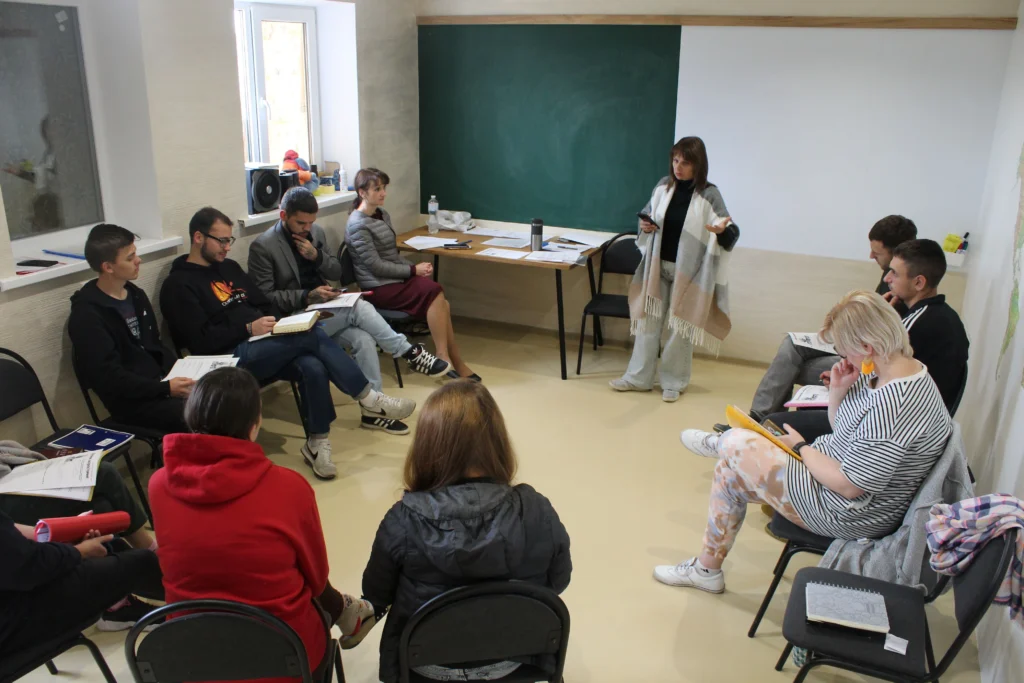
The Ternopil Missionary Institute “Heart of Help” is a religious organization with a twenty-year history of ministry aimed at overseas missions. Over time, several leaders have come and gone, each with a different vision for how the work should be organized.
I have led TMI for eight years now, and during that time I have experienced a significant transformation in our vision. In the past, we sought out people in churches who could quickly be equipped and sent on missions.
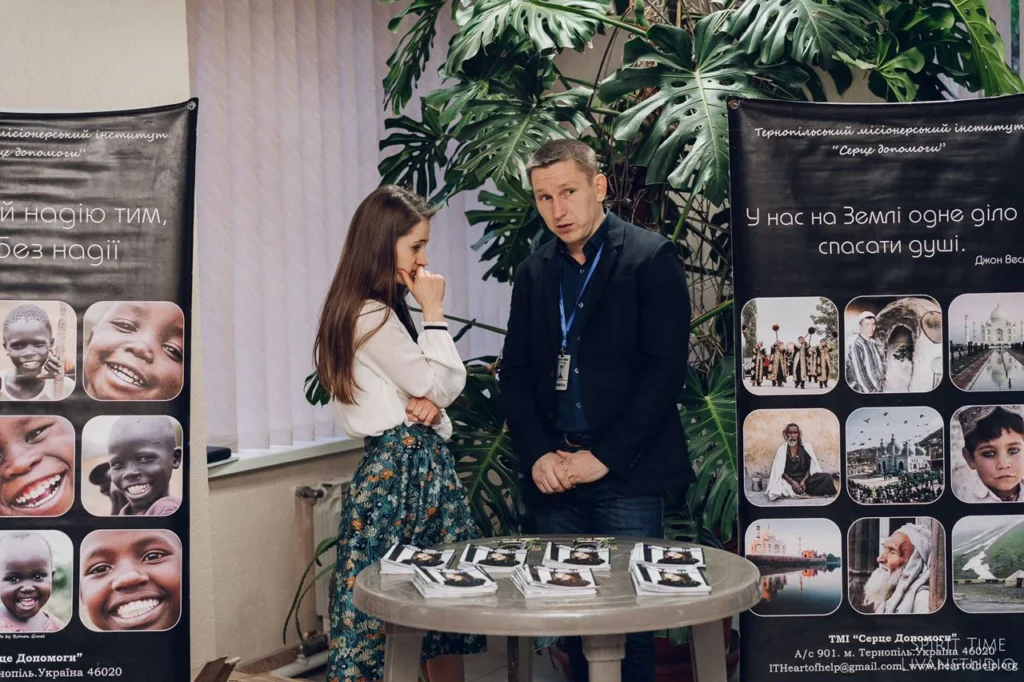
But today we feel it’s essential to work on identifying and nurturing people within churches. Our primary goal is to help local churches develop a missionary worldview.
Ideally, the process of motivating and initially preparing future missionaries should take place in their home churches. If a church is genuinely interested in helping its members fulfill their calling, their productivity in mission work will greatly increase.

Over the years, the Institute helped send several dozen missionaries to countries in Africa, Central and Southeast Asia, and Europe. Some have chosen to serve in Ukraine, and several dozen Central Asian students have returned to serve in their homelands after training and practical experience. This is a huge plus.
However, to be honest, there have also been significant downsides. One of them has been the low involvement of local churches in missions—especially in nurturing, mentoring, supporting, and supervising missionaries.
For various reasons, we couldn’t fill these gaps, which led to hurt feelings and disappointments that ultimately reduced the number of those willing to learn. We tried to address our shortcomings, but the need for systemic changes became increasingly obvious.
At the end of February 2022, our usual training process was halted by an unprovoked and treacherous act of brutal aggression by the russian federation.
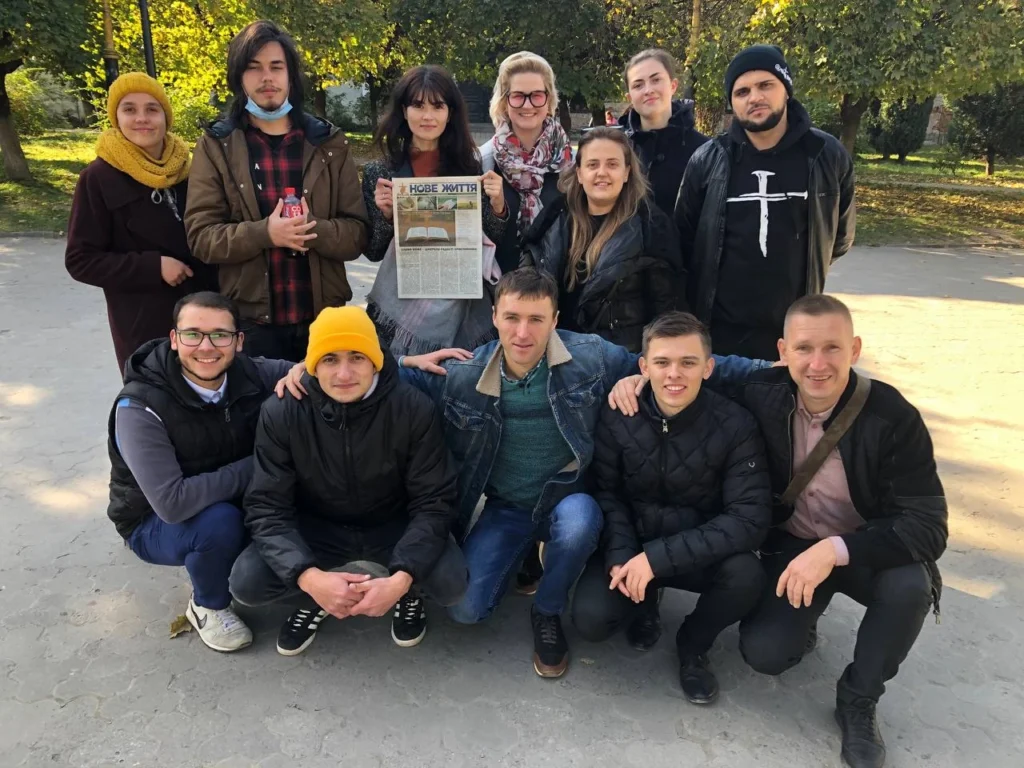
According to you, the mission is the essence of church life, that is, the church should not live for its own sake. What is the reason why this is not the case? And how can we get out of this situation?
The reason is that a large portion of people in the Church hold a non-biblical worldview. Some believe that the essence of Christian life is to secure as many blessings for themselves as possible, thinking that this glorifies God. They live only for themselves, indifferent to the world. The Parable of the Sower illustrates this well. They are weighed down by worries, troubles, the deceit of wealth, and the pursuit of pleasure.
Of course, the Lord wants us to be happy and successful, with good health and prosperity—but is that why Jesus came to earth, suffered, died, and was resurrected?
Others fall to the opposite extreme, passively waiting either for the end of the world or for their own lives to end. I believe many people come to the Church and remain in Christianity only because they misunderstand it.
Christianity is, first and foremost, about Christ, who carries out His mission of salvation through the dedicated service of His people, empowered by the Holy Spirit. That’s why He established the Church—to gather a special people for this purpose. The Church is the means to accomplish the Great Commission; it is His Body through which He impacts the world today. We are the light, the salt, the leaven… Without understanding this, the Church will always be inclined to withdraw into itself, for many reasons.
Conservatism, nominal Christianity, liberalism, the influence of today’s consumer culture, careerism, ordinary human selfishness, fears, and much more. Behind all these negative aspects ultimately stands the devil, who wants to “lull” the Church into inefficiency.
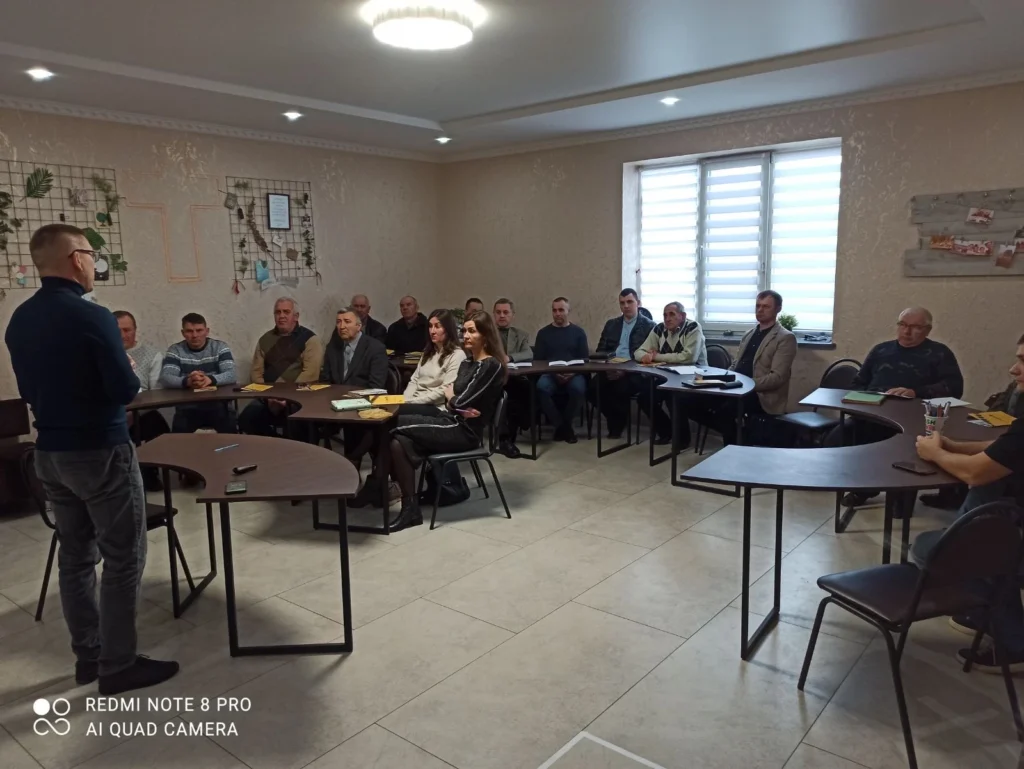
But church teaching is the responsibility of pastors. To overcome this state, it takes the will and effort of church leadership. They must boldly confront these tendencies and engage in mentoring and discipling Christ’s followers, which is their direct duty.
In Revelation, we see that Jesus, as the Chief Shepherd and Head of the Body, calls on the angels (pastors) of the churches to take action for the necessary changes. Perhaps not everything depends on the leaders, but a great deal still depends on the pastors.
For the church to move forward toward its true purpose, its leadership must have a clear vision and support, because there is always a significant passive segment within churches that resists necessary changes. The expectations this segment holds for their pastor and for church programs firmly keep them within traditional practices, and leadership’s reluctance to confront this group is the main reason that substantial change remains impossible.
First, leadership must help people understand that every one of us is saved and blessed—not only to get to heaven and receive more blessings in this life, but also to learn to love Him, become more like Christ, and grow in maturity and fruitfulness in the ministry of saving souls. That is the true expression of love for God.
Second, church leadership must develop methods through which people can grow and disciple others. Usually, we rely on Sunday sermons and try to involve people in various ministries. Additionally, there are training programs, seminars, and inspirational conferences. These are all important, but in my opinion, the most critical element is something else.
The key must be deep, personal mentorship. Every person is different and at different stages of maturity. You can’t effectively impact someone using only general, broad tools. You need trained, Spirit-filled mentors who are dedicated to discipling, led by a pastor-mentor committed to this work.
Third, the people in the church must support the initiatives of the leadership, because they also bear responsibility for the state of affairs in the church—not just the pastors.

How do you believe disciples should be nurtured?
First, by personally exemplifying what it means to be a disciple of Christ. Second, by dedicating yourself to discipleship—investing time and energy in faithful and capable people who, following their mentor’s example, will in turn invest in others. It’s important to ignite this vision in people’s hearts and help them develop a biblical worldview. A solid worldview points to the right goals and encourages self-discipline and self-motivation. The “Interface” and “Kairos” courses can serve as an important first step in building these convictions.
What is the essence of these courses, and how can the knowledge gained impact the fulfillment of the Great Commission?
They are tools for shaping a worldview that sees every Christian’s service as the norm and discipleship as an absolute necessity for carrying out the Great Commission—because discipleship is a strategic aspect of ministry and the means to achieve it. A lot of emphasis is also placed on the fact that God’s people must be prepared for His work.
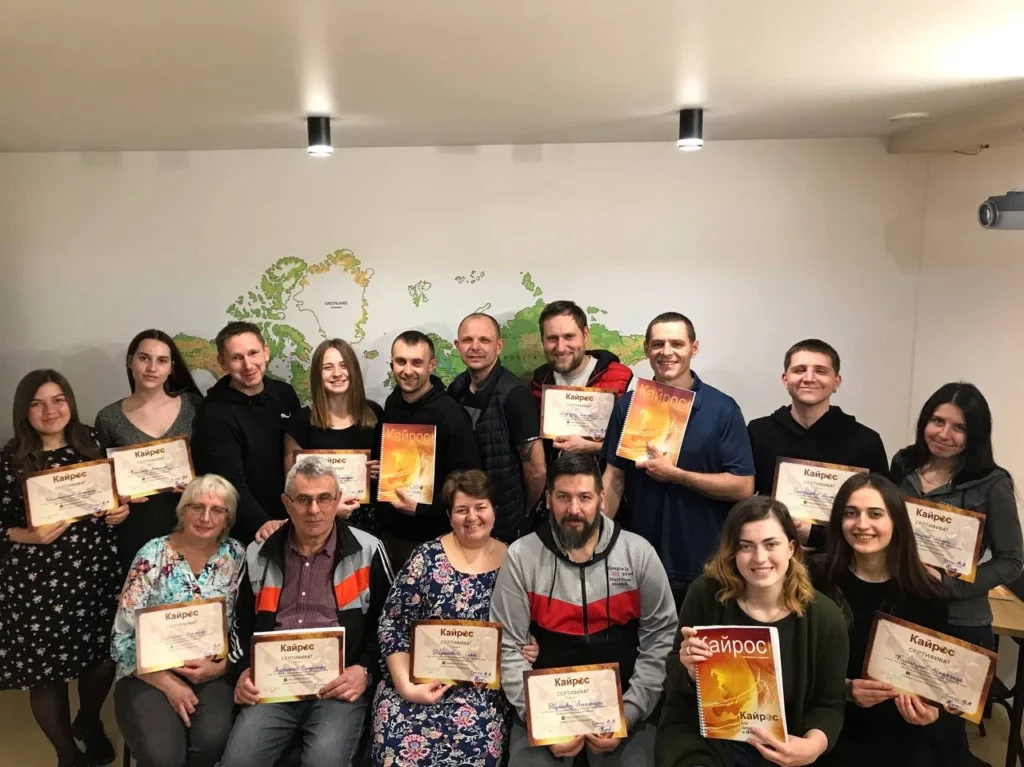
We began offering the first courses at TMI right at the time when full-scale war broke out. Students returned home, and TMI opened its doors to temporarily displaced persons—mostly believers. At times, we had as many as 50–60 people at once. It was for such people that we started teaching “Kairos.”
Imagine—they had lost their homes, were living in another city, and here was a course on missions. On one hand, it might seem out of place, but on the other, it helped people focus on God, realizing that He controls everything and has His own plans in which we have a unique role.
Later, I realized that if church pastors are not “in the know,” it becomes difficult for someone who has received this knowledge to apply it. Subsequently, we began offering these courses in local churches with the presence of church leaders.
The “Kairos” course examines ministry through four key aspects—biblical, historical, strategic, and cultural. It is a very deep and substantial course in missiology.

While “Kairos” is a five-day course, “Interface” is designed for 4.5 hours. It is structured to be engaging not only for ministers—pastors and bishops—but also for someone sitting in church, wondering whether they should repent. It shows where God is inviting us. He isn’t inviting us to just sit on a pew; He is inviting us to share in His Kingdom, granting us the privilege to collaborate with Him. One must understand exactly what journey they are being invited on.
How can you identify if someone is ready to be a missionary?
I believe that strong personal relationships with God and the ability to work in a team are key. When you belong solely to yourself, that’s one thing, but when you interact with others, it can become clear that you’re not mature enough for the kind of service that typically comes under pressure. It helps when a person already has experience in ministry and is capable of submitting to leadership. Here, I realize the issue boils down to discipleship. A discipleship system must be implemented in the Church. Then we can say that we are a Christian nation, that we are on the forefront, that we are the granary. Without discipleship, these will remain mere dreams.
Who is a disciple of Christ?
Bill Hull, author of The Disciple Making Pastor, defines a disciple based on John 15. He outlines six key characteristics of a disciple of Christ.
First, the disciple abides in Christ (John 15:7). Here, Jesus emphasizes the importance of maintaining a living relationship between Him and the disciple through God’s Word and prayer. It is the daily decision of a believer to follow Christ.
Communication with God is the root of a disciple’s life.
Second, the disciple is obedient (John 15:7). People need to be taught obedience to God, as this quality does not come naturally. For effective discipleship, accountability is necessary, as it teaches people obedience to Christ. Jesus requires His disciples to obey out of love—He teaches that love includes obedience, which in itself is love.
Third, the disciple bears fruit (John 15:8,16). There are Christians who do not testify about their faith. But a disciple who glorifies God and doesn’t proclaim Christ simply cannot be considered one by definition.
Fourth, the disciple glorifies God (John 15:8). The Church best glorifies God when it prepares disciples, because disciples who bear fruit glorify Him.
Fifth, the disciple experiences joy (John 15:11). Only disciples inherit this joy, and it’s not just about a good mood. If one’s mood is variable, then joy is that supernatural sense of well-being that comes from knowing we are pleasing to God.
Sixth, the disciple loves as Christ loved (John 15:12–14,17). Love is the defining trait of a disciple. It surpasses everything else in its ability to attract people to the Savior.
In churches, a lot is done, but what to do with people remains somewhat unclear.
There is an expectation that they will mature on their own in the church. But this is where we lose out. Globally, there are hundreds of millions of Christians who are hardly engaged in ministry—mainly because no one is working with them.
A general sermon to an audience is a good tool for influence, but small groups allow for feedback. That’s why we need to build a model in the Church where we can nurture disciples from the masses and identify leaders among them.
Only 3% of the global missionary reserve serves in the 10/40 window. How inclined are Ukrainian missionaries to serve in countries where preaching the Gospel is restricted or even banned?
For now, most missionaries are willing to go where the Gospel is still allowed to be preached—places where there are groups of missionaries so that they feel protected. But there are exceptions.
During the war, life becomes more complicated. Has preaching in the Church become harder or, conversely, easier?
On one hand, it’s easier because in times of crisis, people seek answers; their hearts are more open. Stepping out of their usual routines, they become more receptive to something new. God draws people in, but I believe the main challenge is helping these people become rooted and equipping them for fruitful ministry.
In Luke chapter 15, there are several parables. The first speaks of those lost on the outside, and the next shows that there are also those lost on the inside. This is our field, our harvest!
Mobilizing believers is the key to global evangelization. We no longer need to bring people to Christ—we need to work with people inside the churches. Then, together, we can reach even more.
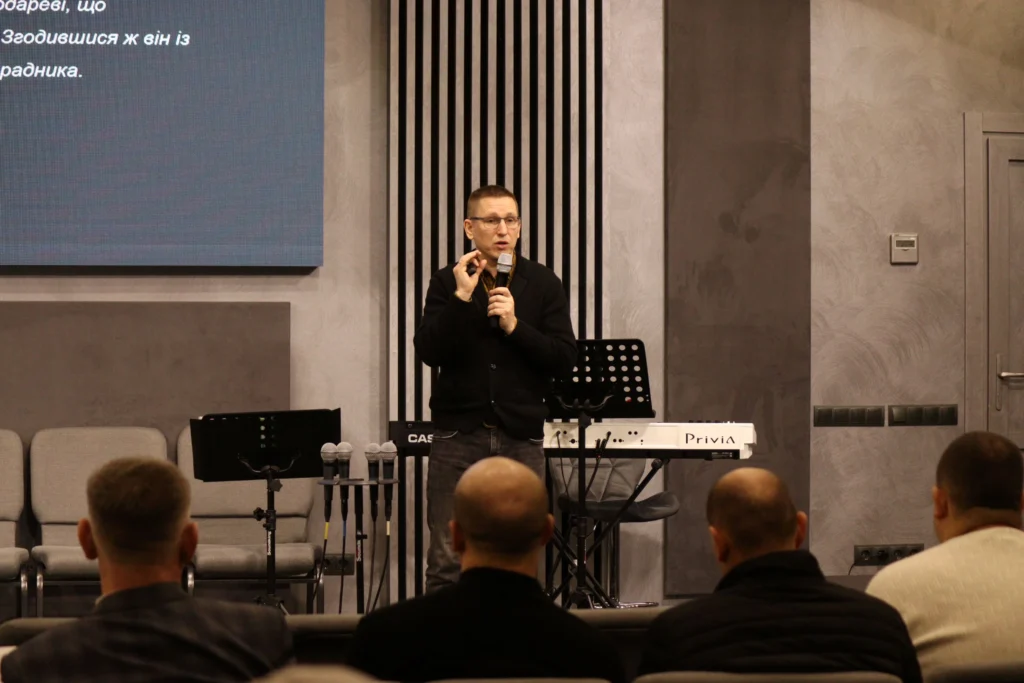
CITA Ministry Press Center.
Interview conducted by Hanna Zeleniova.
